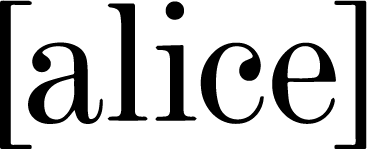by Ellen Johnson
Mackenzie Scott is one of those indie songwriters that catches you off guard. She released her first album as Torres just as she was finishing her degree at Belmont University in Nashville, in 2013, and proved that she was lyrically wise beyond her years. She went on to release another record in 2015, Sprinter, which was met with stellar critical acclaim and, later, anticipation regarding a follow-up. That third record, Three Futures, arrived last fall, and the now Brooklyn-based songwriter (who sings as Torres) is gearing up for a cluster of summer shows and festival appearances, including at Shaky Knees in Atlanta (May 4 – 6). Sometimes young, autonomous songwriters like Scott surprise us with their studied skills, but by the time Three Futures landed, the music world knew to expect from Scott a mature voice and refined lyrical content, which she aptly served up.
Scott is from Macon, Georgia and now lives in New York, but the city hasn’t chipped away at her southern identity. She sums her feelings up well on the Three Futures track “Tongue Slap Your Brains Out”: “I know you never dreamed / I’d become a damn Yankee / I need you to believe / That I’m still your same baby.” We talked to Scott about her newest album, growing as a songwriter in Nashville and the joys and pains of living in New York.
So it’s been about six months since the release of “Three Futures.” Looking back, what have listener reactions been like and how have shows been going?
It’s hard to know exactly how the album is sitting with people. Apart from the direct feedback that I get on Twitter and Instagram and whatnot, the people that have commented in any way on the record and their relationship to the record is it’s all been encouraging. It does seem to be connecting, at least to a small number of people. But again it’s so hard to know. It’s a little bit easier to gage at the shows themselves because people are right in front of me and I can see physically how they’re connecting to the songs in the movement.
What was your experience like in college at Belmont, and how did your studies there help you grow as a musician?
I lived in Nashville for a little over four years, and it was very formative, as the college years generally tend to be. A lot of it was really, really wonderful. I got a degree in songwriting, and I think the most helpful thing about that degree was not actually anything having to do being taught the craft of songwriting. I don’t actually think that a person can be taught to write songs, in the same way that you can never teach someone to paint. But what it does do for people who know that they want to do that and just need to get better at their craft, it just carves out time and space for a person to practice doing that. So basically I just spent several years writing constantly. Half the time, or more than half the time, I didn’t want to write, but it was my homework and it was required of me if I wanted to graduate from college. So that was very helpful being held accountable to the structure that required that sort of repetition instead of just being someone who writes when I feel like it. Now it’s something I can do even if I don’t feel like it, which is very helpful because a person is not always inspired, and if I want to make a living, I have to do it all the time.
In what ways did your time in Nashville help you learn about not only music but also the industry itself?
I will say that one of the biggest helps to me is actually something that was very frustrating at the time, which is that I could not book shows. It was really really hard to get anyone to let me play at their venue. A huge part of that is that I was still very green and didn’t have a lot of experience performing, but that’s what I was looking to do. So it’s kind of a catch 22 in that way – someone looking to get out there and perform but not being able to get shows because they haven’t performed. So it left me very determined rather than defeated, which is the nice thing about youth. So not getting shows was very helpful in just preparing me for the way that the industry works. And on a larger scale that’s the point that I’m trying to make, and it’s still very hard now. I think it was nice that I got that version of it so early on. I just kind of hardened up pretty quickly, which is important.
Each of your three LPs has really different themes and sounds. How would you describe the evolution or the categorization sonically of your music from your first record to your most recent?
[The first record] was a collection of my very first batch of songs that I ever wrote. That album is comprised of songs that I wrote over four or so years, basically the entire time that I was living in Nashville. I haven’t even listened to that record in years, but I imagine that the sound of that record is it’s the voice of somebody very green and very simultaneously world-weary already, but also very really hopeful and idealistic. Sonically speaking that album is pretty bare-bones, but also a little bit experimental at that time. I was pretty exclusively strumming and fingerpicking my electric guitar.
On the second record there was still a lot of that fingerpicking through the overdrive pedal, but also there were more pedals incorporated on the second album around the time that I started getting the two guitar effect. And [there were] more elaborate percussive elements, not just a fuller drum sound, but also other percussion elements. Rob Ellis, who produced Sprinter with me, was the one to play drums and percussion on that record. He’s so so fantastic.
Then Three Futures, there’s no regular guitar bass at all. [It’s] solely synthesizers, moogs for bass and, other than strumming or fingerpicking on my guitar, it was pretty exclusively guitar solos, which is fun for me playing on this record a lot more tricky-tricky guitar stuff that I had never thought that I would be able to play. So that was challenging and fun, and the drums were quite electronic on this last record as well: a lot of overdubbing electronic drums on top of the regular to make a sort of compressed and surreal sound.
Did your southern upbringing influence you in becoming an artist?
More so than becoming an artist I think that it just kind of made me who I am as a person. And of course, that makes its way into my art itself, and it informs a lot of the decisions that I make, especially aesthetically. I’d say like just what I wear on stage and what I wear in photo shoots and the scenes that make their way into the songs, they are pretty southern. But a lot of southernness, it’s just kind of at the core of who I am. And maybe it’s there in ways that are not so identifiable. If you were to try and isolate those parts of me and determine where they are and what they are, I’m not sure that they would be so obvious. But I do think that I am deeply southern in many ways.
I keep hearing you say the word green, and one song on the record that’s particularly striking and abstract to me is “Greener Stretch.” What ideas or story are you projecting in that track?
I was running off a couple of themes at the same time with that one. More generally, I just wanted it to be a song about purely hope, which is something that I have explored in the past, but never so explicitly and directly. I just wanted it to be a song about hope and about anticipating a future, despite at the beginning of the song, the character that I’m singing about is living in an actual sinking house. [When] the album came out, it was just under a year after Trump was elected, and it’s funny because there was this collective terror that I felt in the air for several months leading up to the election. I almost feel like it was forming a lot of the songwriting – it was like I was already putting on my battle gear and trying to prepare to be resilient no matter what. I think that song is definitely a huge part of that preemptive theme. I wanted to write something hopeful.
How long have you been based in New York and how did you adjust moving from the South?
Nearly five years ago now – gosh it’s been five years. That is insane! I just realized how long it had been when you asked. Initially, it was very shocking. I think it took me at least a year to feel like I even belong here, but I still loved it. The thing that was really helpful about having that feeling when I got here was that I was still kind of riding an adrenaline high from moving here and being so thrilled about it that it helped a lot with what a lot of people experience when they move here, which is complete and utter depression. I’ve seen people move here and totally shut down and hold up in their apartments because they feel like they can’t go outside. It can be really overwhelming, but I’m very lucky that I didn’t have that experience. I was really excited right when I got here and it did take a lot of adjusting, but I never had a period where I felt like I was too overwhelmed to go outside and live in the city, like actually engage with the city. So that was a blessing.
Despite being so deeply southern, this is the city that’s very much my speed, and I enjoy pretty much every aspect of it, even the parts that a lot of other people don’t like. I kind of love all of the nitty-gritty of it. I love the sound of traffic; I love the sound of a taxi honking. Five years later I still love it. I love being able to walk out my front door and eat literally any cuisine, like authentic cuisine, from any part of the world. I think it’s just the most exciting thing. I love everything about it.
Are there any negatives?
Of course, sometimes I have my days where I’m like “Man, I miss my car!”. Sometimes I even miss like the really simple sweet stuff, like going to church on Sunday mornings with my parents. Sometimes I really do get very nostalgic about those aspects of being a southern person or just being from a small town in general. But overall it’s very much for me to be here, so I don’t really have any complaints about it.
Cover photo by Ashley Connor






